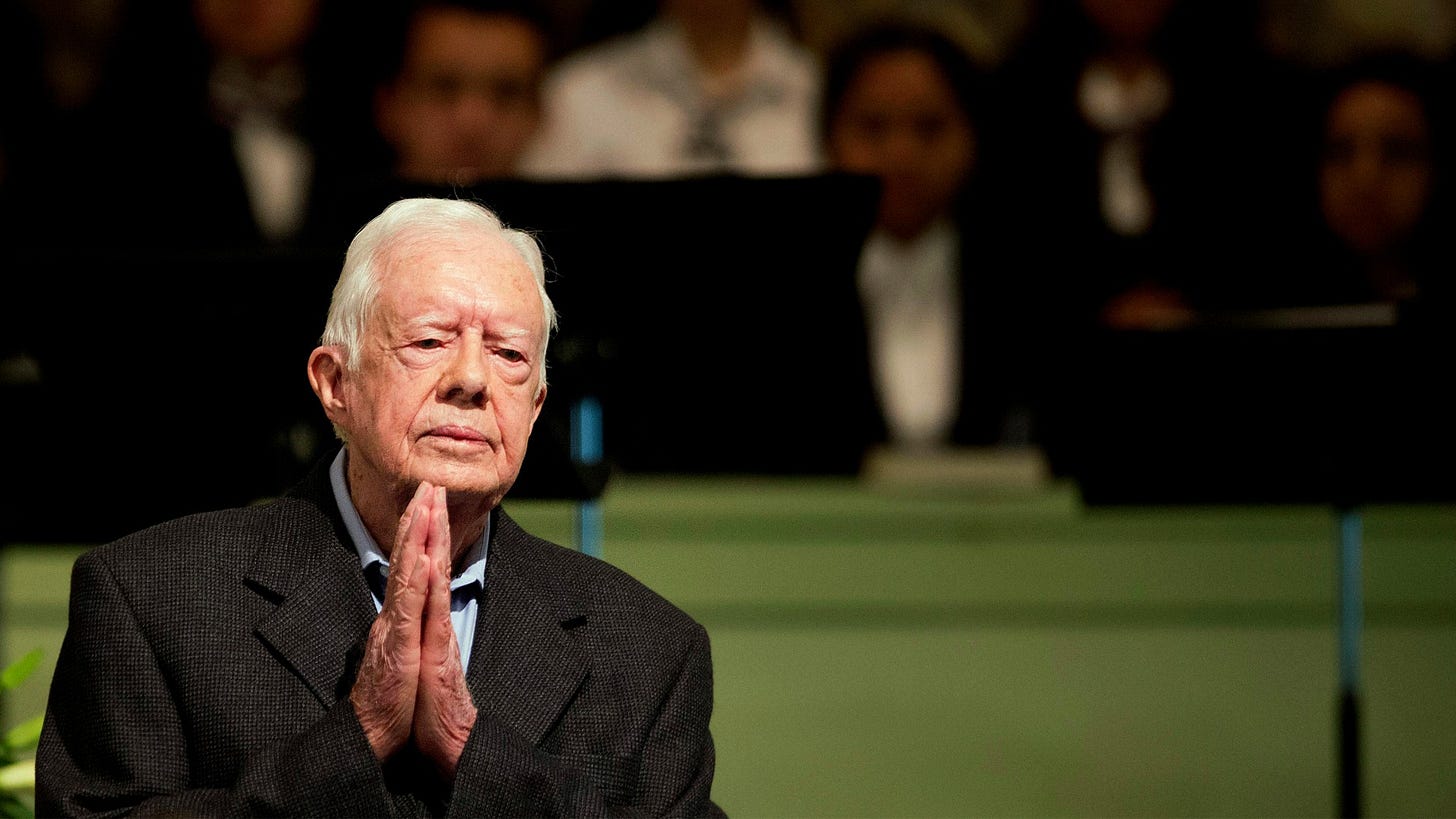Jimmy Carter is a name synonymous with many things—39th President of the United States, peanut farmer, Nobel Peace Prize winner, and self-professed devout Christian. Yet, for all the accolades and self-proclaimed humility that have long bolstered his reputation, his record—especially in matters of theology and morality—tells a far more troubling story.
Carter’s religion, much like his politics, has been a patchwork of liberal ideologies masquerading as Christian virtue, an assortment of half-truths and outright mutiny against the very God he claims to serve.
Carter’s presidency (1977–1981) was marked by his infamous self-portrayal as a born-again Southern Baptist, a label he wielded with pride. He once described his faith as “deeply personal,” yet his political positions repeatedly dragged that so-called faith into the mud of moral relativism.
On abortion, he walked a treacherous tightrope, claiming to personally oppose it yet supporting its legalization and refusing to push back against its growing normalization. Even more damning, he offered encouragement to legal challenges against anti-abortion laws in Georgia, effectively aligning himself with the culture of death he claimed to lament.
And let us not forget his liberal theology on homosexuality, which culminated in his shocking assertion that Jesus would support same-sex marriage—a claim he even admitted was devoid of any biblical basis. That may have been the “Jesus” whom Carter worshiped, but it isn’t the Jesus of the Bible.
His theological unraveling didn’t stop there. In 2000, Carter severed ties with the Southern Baptist Convention, citing their “rigid” stance on biblical authority and women in ministry. But the reality is that Carter wasn’t fleeing rigidity, he was fleeing conviction.
Carter could not stomach the inerrancy of Scripture or the moral absolutes it proclaims. His departure wasn’t an act of principled dissent, it was a flight from orthodoxy, a refusal to bow the knee to whom every knee will ultimately bow, like it or not.
This is the backdrop against which Al Mohler’s recent comments must be understood. When asked on the Room for Nuance podcast whether he believed Carter was born again, Mohler, ever the diplomat, responded, “I have to hope and pray so.” Mohler even recounted personal interactions with Carter, including a gesture of kindness from the former president in sending a friendly message through a mutual acquaintance.





